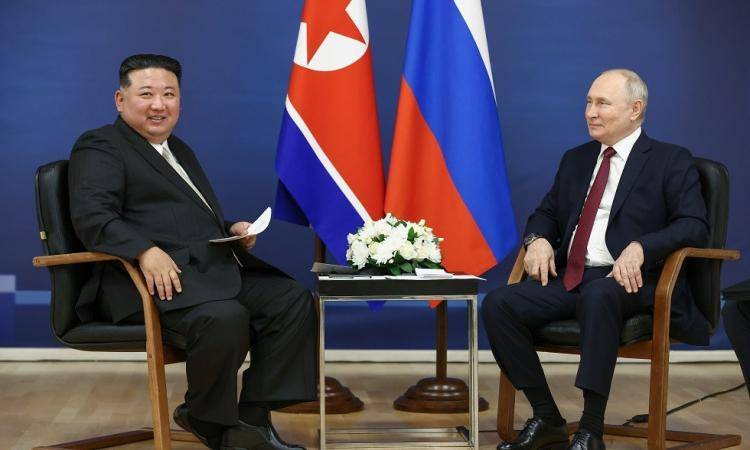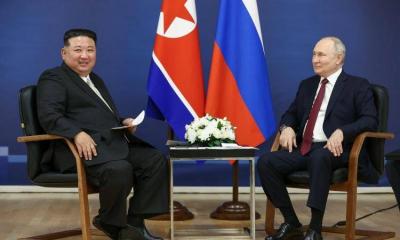After months of speculation and anxiety in international circles, Russian President Vladimir Putin began a two-day official visit to North Korea on Tuesday, during which significant agreements are expected to be signed, particularly in terms of enhancing military cooperation between Moscow and Pyongyang. This visit raises many questions about its implications and exacerbates worries within the Western camp, which is embroiled in the ongoing war in Ukraine. Prior to his arrival in North Korea, Putin approved a draft "comprehensive strategic partnership agreement," marking a new qualitative phase in his country's relations with the world's most isolated nation, which has strongly sided with Russia in the Ukrainian war and its escalating confrontation with the West.
**"An Important Visit"**
Putin's visit to North Korea carries special significance amid complex regional and international circumstances, generating natural curiosity as it is only the second time he visits the country, the first being in 2000 at the beginning of his presidency when Kim Jong Il, Kim's father, was the country's supreme leader. However, the issue extends beyond mere visits. The relationship between the two countries, which was not strong across all dimensions during the Soviet era, has transformed from a mutually courteous relationship to one dominated by mutual benefits, a development that concerns the West. The Kremlin has stated that there will be opportunities to enhance practical relations between Russia and North Korea. According to Russian political science professor Sergey Markov, Russia is likely seeking ammunition, construction services, and even volunteers to fight on the front lines in Ukraine.
**"Increasing Western Anxiety"**
The West accuses North Korea of providing Moscow with important military technologies. Reports indicate that Russia has used various types of North Korean weapons and equipment heavily in the Ukrainian war, including multipurpose missiles transported to Russia in large quantities, as well as millions of artillery shells and ammunition for heavy and medium weapons—claims that Moscow and Pyongyang have repeatedly denied.
The U.S. administration has expressed concern regarding the "deepening relationship" between Putin and North Korean leader Kim Jong Un. U.S. National Security Council spokesman John Kirby told reporters, "We are not concerned about the visit; what concerns us is the deepening relationship between these two countries." He pointed to the direct impacts of this deepening relationship on the war in Ukraine, including Russia's use of North Korean ballistic missiles to target Ukrainian sites.
According to Western assessments, Pyongyang has leveraged its vast stockpile of ammunition to provide large quantities to Russia, with the Pentagon accusing Moscow last week of using North Korean ballistic missiles in Ukraine. In response, Ukrainian Foreign Minister Dmytro Kuleba called on the international community to confront the close relationship between Putin and Kim by increasing arms supplies to Kyiv. He stated, "The best way to respond to this (the visit) is to continue strengthening the diplomatic alliance for a fair and lasting peace in Ukraine and to deliver more Patriot missiles and ammunition to Ukraine."




